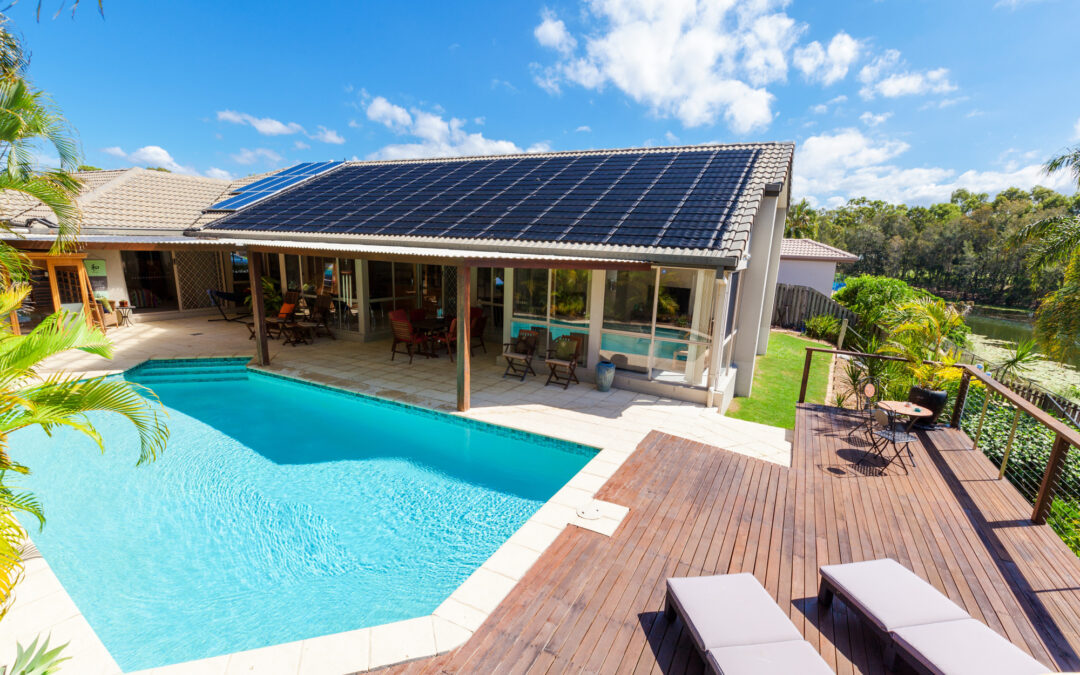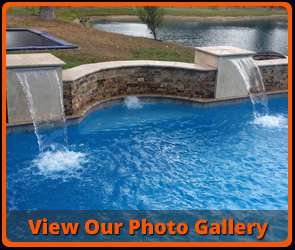Nothing screams summer so much as a weekend spent by the pool. Parents get to lay in the sun and unwind in the warmth. Kids make memories while splashing and playing in the water.
Swimming pools bring immense joy to communities across the country. However, sometimes those community pools aren’t the haven you dream of. They often become too cramped, making it nearly impossible to enjoy yourself.
Instead, many families choose to install a swimming pool at their residence. When they do, though, they meet a choice that’s often difficult. They find they must choose between a freeform pool and a rectangular pool.
Learning how to choose a pool shape can be a complex task. Fortunately, that’s why we’re here. In this guide, we’ll explore which pool option has the best benefits for your family.
Rectangular vs. Freeform Pool: What Difference Does it Make?
You may wonder why the shape of your pool would matter. After all, a pool is just a body of water to jump into and cool off, right?
That outlook may work for some people installing a pool. For most people, though, other concerns may affect what type of pool shape they choose. Generally, though, one pool shape is often the standard: the rectangular pool.
For example, the size of your yard may affect your decision. If you have a yard that’s long but narrow, many pool shapes become laborious to install. A rectangular pool, however, can solve this problem with ease.
In situations like this, homeowners can choose a “skinny rectangle” pool. This pool shape has a long length but a narrow width. In many cases, their width falls between eight and ten feet.
Furthermore, different pool shapes have varying utilities. For example, rectangular pools are the perfect shape for homeowners hoping to exercise in the pool. Their straight paths and spacious widths make these pools ideal for swimming laps or water aerobics.
Rectangular pools also have some customizable options. One feature they utilize is softening and rounding the corners of the pool. This method allows you more easily incorporate a spa or similar features at one corner of the pool.
Drawbacks of a Rectangular Pool
From the above section, it may seem like rectangular pools are the optimal choice for any yard. However, there are a few drawbacks to consider. First, there’s the cost of the pool.
Because rectangular pools are so standard, people often think they may be a cheaper option than freeform pools. However, rectangular pools often add more feet to the perimeter. As a result, they typically add to the final cost.
Rectangular pools also require increased square footage in your yard compared to most other pool shapes. They’re also more inflexible than differing styles.
For example, let’s say there’s a feature you’d like to keep in the yard, such as a tree or some shrubbery. If they fall into your rectangular pool’s path, you only have two options. You can remove those items, or you can cut your design short.
From this perspective, rectangular pools can become a little too rigid for some people’s purposes. Instead, it may be best to look at freeform pools. We’ll examine their benefits in the section below.
Benefits of a Freeform Pool
A freeform pool is the polar opposite of a rectangular pool. While rectangular pools offer a standard shape and design, freeform pools often have free-flowing, curvilinear forms. People sometimes refer to this style as a radius pool.
Technically, any pool with rounded corners could qualify as a radius pool. However, when experts use the term, they usually have particular design features in mind. We’ll discuss some options for these pools in the next section.
Freeform pools’ main attraction is the way they incorporate and enhance the landscape of your outdoor space. Let’s return to the example of having a tree in your yard you’d like to showcase.
As we discussed before, rectangular pools typically can’t accommodate existing yard features in their design. Freeform pools, however, can do this beautifully.
People often use a freeform pool shape to create natural lagoon features in their yard. As these pools wind and meander, they can utilize shrubs and trees to create a luxurious, open feel in your yard.
These pools also work beautifully if you follow Feng Shui designing techniques. Moreover, they typically have reduced perimeter lengths and square footage than their rectangular counterparts. As such, if you design them efficiently, you may save money using these designs.
Types of Freeform Design
As mentioned before, freeform pools often go by the name “radius pools.” While many homeowners choose to create unique designs for their home pool and landscape, others may prefer to use pre-defined styles. We’ll examine a few of these styles below.
First, and perhaps the most popular, among these styles is the kidney pool shape. Once the most widespread design for home pools, these pools have a curved body with an indention on one side.
Kidney pools create natural ways to divide the deep and shallow ends of the pool. You can also use the space near the pool’s indent for several things. Many choose to make it a relaxing tanning edge, while others use that space to showcase landscaping features.
Another somewhat less common design is the figure-8 pool shape. As its name suggests, this pool resembles the number 8. It has a smaller oval sitting above a larger oval but with a thick middle between them.
Its design lends a significantly modern aesthetic. Moreover, these pools provide an increased swimming area from a kidney pool. Because it uses less perimeter space than either a kidney or rectangular pool, you can save more money with it.
Design Your Freeform Pool Today
A freeform pool offers many advantages, from reduced costs to unique aesthetics. If you want a unique design that complements your landscaping, check out our services!
We offer an in-depth 3D design process unmatched by others in Texas. With our approach, you get a precise idea of how your pool will look in your yard. Don’t miss out; try out this process today!




